'Alternative to engagement with US on Palestinian-Israeli conflict is vacuum’
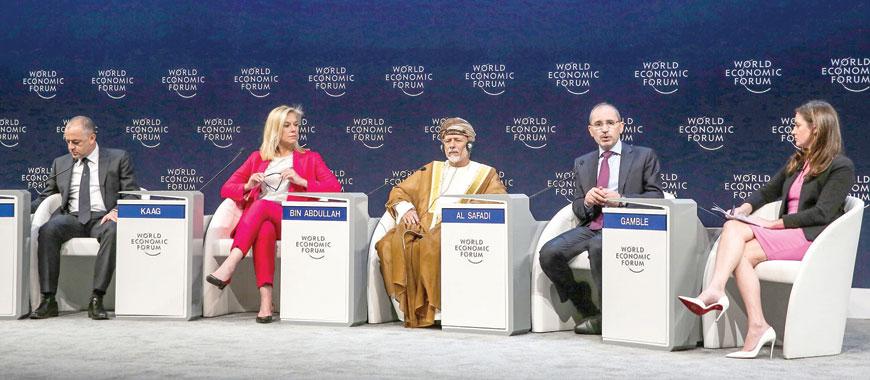
The Jordan Times
Left to right: Lebanese Defence Minister Elias Bou Saab, Dutch Foreign Minister Sigrid Kaag, Omani Foreign Minister Yusuf Bin Alawi Bin Abdullah and Jordan’s Foreign Minister Ayman Safadi sit on a panel moderated by anchor Hadley Gamble, during the 2019 World Economic Forum on the Middle East and North Africa, at the King Hussein Convention Centre at the Dead Sea, on Saturday (AFP photo)
DEAD SEA — Ongoing positive engagement with the US is needed to resolve the Palestinian-Israeli conflict, while the key issue obstructing a settlement is Israel’s continued occupation of Arab territories, Minister of Foreign Affairs Ayman Safadi said on Saturday.
“The US is a major player. Every crisis in the region would benefit enormously from an active US engagement and we encourage that engagement, but I think it is our duty to our people, to our region and the world is to say things how they are,” the minister said during a session of the World Economic Forum on the Middle East and North Africa on Saturday, currently being held at the Dead Sea shore.
“You cannot ignore there is an occupation [in Palestine] that needs to be ended for this to be achieved. You cannot ignore that there is a crisis in Syria, that, yes, has quieted down in terms of military activity but in terms of its implications they are still pretty much strong,” Safadi added.
“The US will continue to have a key role in the Middle East… it is a superpower… we engage with them positively and frankly,” Safadi told the participants, noting that Jordan has rejected the US recognition of Jerusalem as the capital of Israel, “as you cannot preempt a final status issue”.
The foreign minister stressed that the alternative to continued engagement with the US on resolving the Palestinian-Israeli conflict is “vacuum”.
“We agree to disagree with the US… we have excellent ties with [them] and friends speak the truth… We are frank with the US; we have positions and we have principles,” he said.
Arab ministers renewed commitment during the session to the 2002 Arab Peace Initiative, which they said is key to ending the conflict.
“Arabs are committed to the peace deal that recognises Israel, [so] what more assurances do the Israelis need? The problem is not with lack of assurances, the problem is with the continued Israeli occupation,” Safadi added.
Safadi made his remarks as Oman’s Minister of Foreign Affairs Yusuf Bin Alawi Bin Abdullah said that Israel needs assurances about its future, and that Arabs need to remove “all of Israel’s concerns and fears”.
Israel has only to withdraw from territories it occupied in 1967, Safadi said.
“If they feel uncomfortable, it is not my problem… the problem is not with the Arabs, it is with Israel not working for peace… Israel is in the region but not of the region, it has to respect the right of the Palestinians to statehood… Israel is assured about its security, but it needs to stop to continue to occupy Arab lands,” the minister said.
He added that all efforts to bring about stability and peace in the Middle East will not succeed without reaching a just solution to the conflict, based on the two-state solution and the 2002 Arab Peace initiative, which offers Israel normal ties with the Arab world in return for withdrawal from territories it occupied in 1967.
“Palestinians want a state and they will not accept anything short of that,” Safadi stressed.
The minister said that everything in the region is interlinked and it is necessary to look at regional issues in a holistic approach, adding that developments in the region affect the whole world.
Jordan rejects any interference in the region and states that ties with Iran need to be based on non-interference and mutual respect, he stressed.
“We have some issues in Iran’s interference in the region,” he added.
Speaking during the session, Lebanese Minister of National Defence Elias Bou Saab said that the problems in the Middle East originate from the Palestinian-Israeli conflict.
“If we do not give the Palestinians their country we will continue to have problems in the region, and the conflict will not remain in the region but will be exported,” the Lebanese official said.
On common challenges, he said terrorism has no boundaries, and in spite of Daesh’s military defeat the terrorism ideology remains.
For his part, Minister for Foreign Trade and Development Cooperation of The Netherlands Sigrid Kaag said that Europe is engaged in efforts to settle the conflict and supports UN-led efforts in that regard.
“The EU supports the two-state solution… The disengagement of the US is a concern for all of us,” the Dutch minister said.
Meanwhile, Safadi held separate talks on the sidelines of the forum with a number of counterparts and officials attending the forum, including Kaag and Singapore’s Senior Parliamentary Secretary in the Ministry of Foreign Affairs and the Ministry of Trade and Industry Tan Wu Meng.
He also met with Slovakian Minister of Foreign Affairs and European Affairs Miroslav Lajczak, Latvian Minister of Foreign Affairs Edgars Rinkevics and Kazakhstan’s Minister of Foreign Affairs Beibut Atamkulov.
Emirati Minister of State Ahmed Sayegh, the Omani foreign minister, Palestinian Foreign Minister Riyad Al Maliki and US Deputy Assistant Secretary and Special Envoy for Syria Joel Rayburn also met with Safadi on Saturday.
Talks during the meetings went over means of bolstering economic ties and investment cooperation, as well as efforts to resolve regional crises, foremost of which is the Palestinian-Israeli conflict, along with the Syrian crisis and the war on terror.
Latest News
-
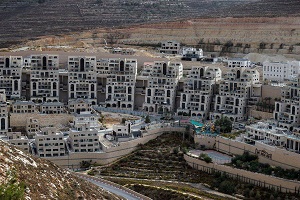 Jordan, Arab, Islamic countries condemn Israeli measures to impose sovereignty over West Bank
Jordan, Arab, Islamic countries condemn Israeli measures to impose sovereignty over West Bank
-
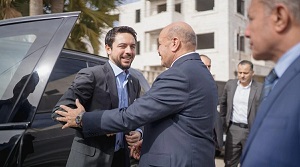 Crown Prince meets with community leaders, notables in Sahab District
Crown Prince meets with community leaders, notables in Sahab District
-
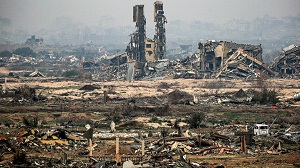 Top Hamas leader rejects disarmament or ‘foreign rule’
Top Hamas leader rejects disarmament or ‘foreign rule’
-
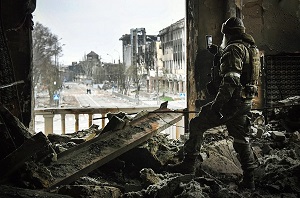 Zelensky: Trump wants Russia-Ukraine peace deal by June, before midterms focus
Zelensky: Trump wants Russia-Ukraine peace deal by June, before midterms focus
-
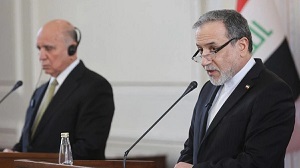 Iran doubts whether US taking negotiations seriously
Iran doubts whether US taking negotiations seriously